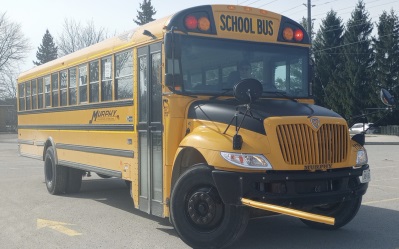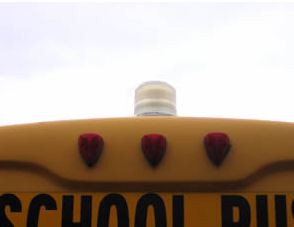Safety of School Purpose Vehicles

In Ontario the children who are in our care daily are the first priorities of student transportation. Every school day almost 837,000 students travel in about 16,000 school purpose vehicles. According to Transport Canada, the yellow and black school bus is 16 times safer as a mode of transportation for school children - in terms of construction, driver standards, training, and passenger safety. Ontario regulations require buses be driven by specially trained, licensed drivers with good driving records. All school buses must meet safety standards established by Transport Canada and the province. For example, in Ontario all school buses must have a front safety crossing arm.training, and passenger safety.
MTO continuously monitors developments in the industry and works with our road safety and industry partners to assess additional safety features on school buses. Due to the unique design of school bus seating, Transport Canada does not require seat belts to be installed on school buses at this time, other than for the driver.
School buses are designed to protect passengers through compartmentalization. High-back seats with energy-absorbing seat backs and padding are closely spaced together to contain passengers in the seating position.
Transport Canada is responsible for setting safety standards for equipment, including seat belts, on new vehicles and would be responsible for making any possible changes in those standards.
Transport Canada research shows, on a per passenger, per kilometre basis, the occupants of school buses are less likely to be injured in road collisions than the occupants of any other vehicles. School buses must meet stringent standards for structural integrity, crash protection, fire retardancy, and emergency equipment.
Murphy Bus Lines is proactive with all our school purpose vehicles. Our mechanics do regular maintenance & service on all school purpose vehicles every 2000 kms.

